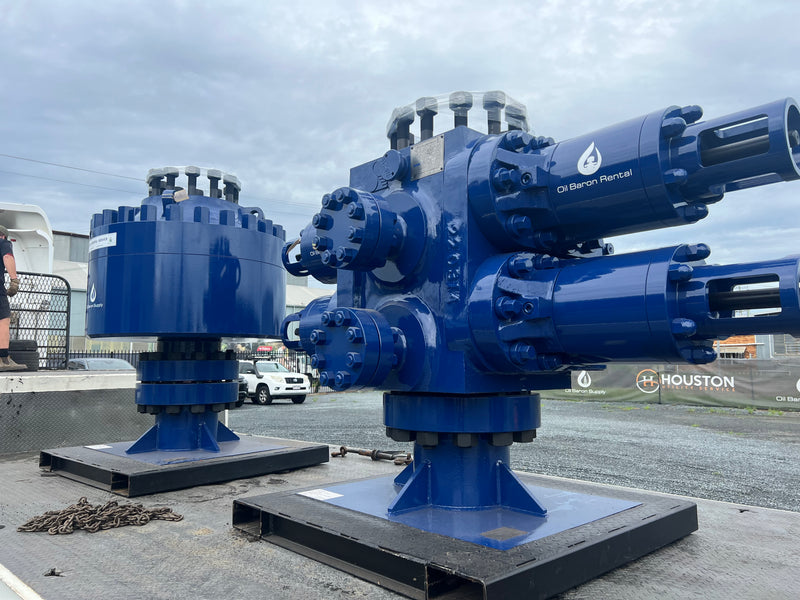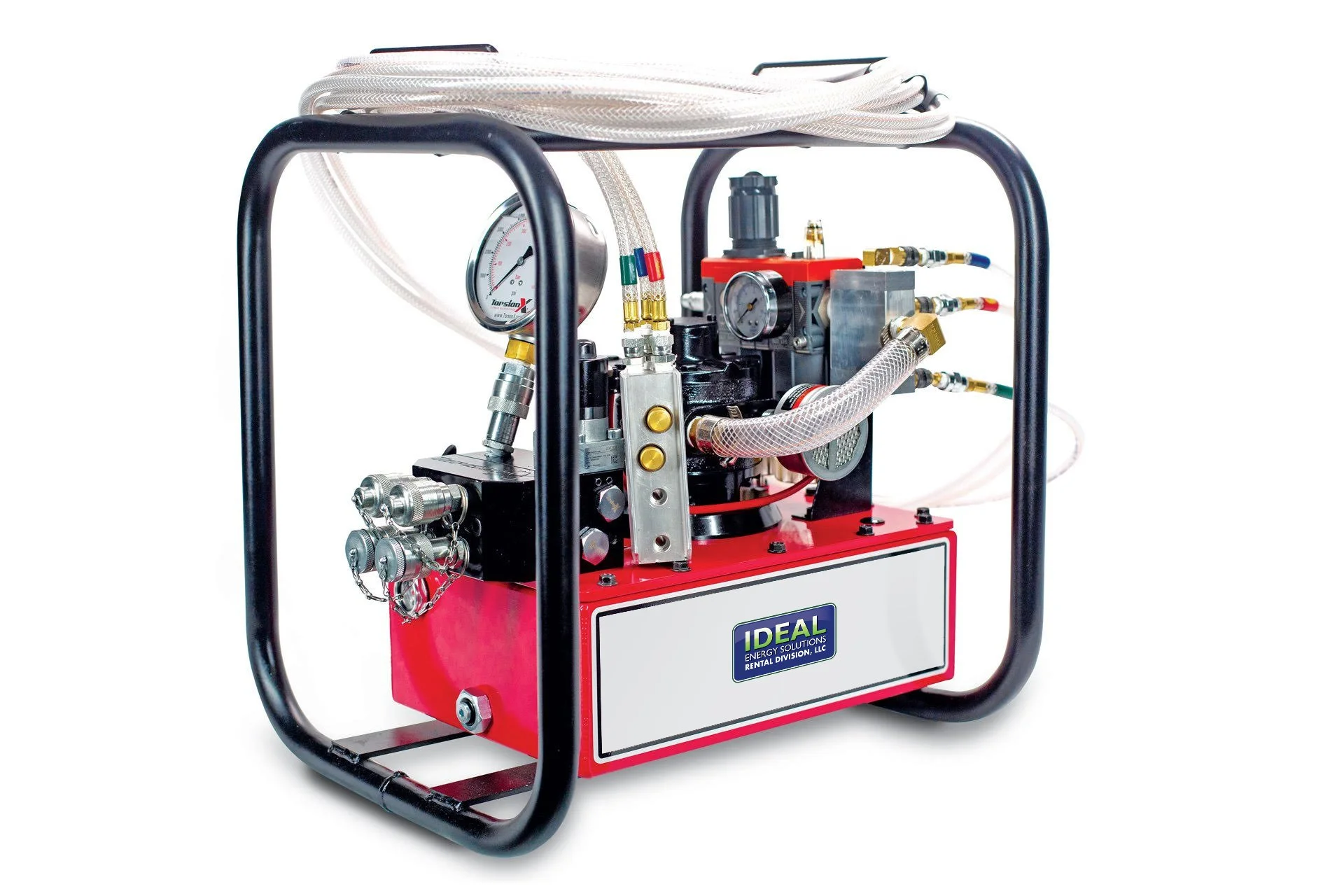Superior Rentals fusion machines: maintenance tips every crew should know
A Comprehensive Overview to the Numerous Sorts Of Oil Field Equipment and Pipeline Equipment Available
The oil and gas market depends heavily on specialized tools for reliable removal and transport. Numerous kinds of machinery, from drilling rigs to storage containers, play essential duties in this complicated process. Each tool offers unique functions that contribute to total functional success. Comprehending these components is vital for anyone involved in the field. As the market develops, so too do the modern technologies that sustain it. What improvements are on the horizon?

Drilling Rigs: The Backbone of Oil Exploration
Drilling rigs offer as the essential machinery in the domain name of oil expedition, enabling companies to access hydrocarbon reserves buried deep below the Planet's surface area. These rigs come in numerous kinds, consisting of land rigs, offshore rigs, and mobile devices, each made to operate in particular atmospheres. Equipped with sophisticated innovation, drilling rigs can permeate geological formations with precision, guaranteeing efficient source removal. The architectural honesty and functional abilities of these rigs are essential, as they should stand up to extreme conditions and significant pressures. Moreover, the selection of an exploration gear affects the general project price and timeline, making it a vital factor to consider for oil business looking for to optimize their expedition efforts and make the most of efficiency in their operations.
Pumps: Necessary for Liquid Movement
In the oil removal procedure, the role of pumps is considerable, promoting the movement of fluids throughout numerous phases of production. Pumps are necessary for transferring crude oil, water, and various other liquids from underground tanks to the surface area and after that through pipelines to refineries. They are available in various types, consisting of centrifugal, positive displacement, and completely submersible pumps, each serving details functions based upon the liquid qualities and functional needs. Centrifugal pumps are typically made use of for their efficiency in high-flow applications, while positive variation pumps excel in managing thick liquids. The choice of pump influences overall efficiency, operational safety, and upkeep prices. Proper option and maintenance of pumps are important for maximizing manufacturing and minimizing downtime in oil field procedures.
Valves: Controlling Circulation and Pressure

Shutoffs play a crucial function in managing the flow and stress of liquids within oil areas and pipes. Numerous kinds of shutoffs serve unique applications, each designed to meet certain functions fundamental for reliable operation - Superior Oilfield Rentals oilfield. Comprehending the characteristics and uses these valves is necessary for optimizing system efficiency and security
Types of Valves
Necessary components in oil area procedures, valves play a crucial role in regulating the flow and stress of fluids within pipelines and devices. Numerous kinds of valves are used to satisfy the varied needs of oil and gas production. Typical kinds include entrance shutoffs, which offer a straight-line circulation and very little stress decline; globe shutoffs, understood for their throttling capacities; and sphere shutoffs, recognized for their quick on/off control. In addition, check valves stop backflow, while butterfly valves use a lightweight option for managing circulation. Each shutoff kind is developed with certain materials and arrangements to withstand the harsh conditions often located in oil fields, making certain integrity and effectiveness in operations. Comprehending these types is crucial for effective system management.
Valve Applications and Features
While different types of valves serve distinctive functions, their main applications revolve around regulating circulation and pressure within oil and gas systems. Shutoffs such as gateway, globe, and round valves regulate liquid motion, guaranteeing peak efficiency and security. Gate shutoffs are frequently utilized for on/off control, providing marginal flow resistance. Globe shutoffs, on the other hand, deal exact flow law, making them ideal for throttling applications. underground water leak detection Round shutoffs are favored for their fast operation and limited sealing capacities. On top of that, pressure alleviation valves are critical for preventing system overpressure, guarding devices integrity. On the whole, the proper selection and application of shutoffs boost operational efficiency, making sure the dependable transportation of oil and gas through pipes and processing facilities.
Compressors: Enhancing Gas Transportation
Compressors play a vital role in the efficient transportation of gas, making sure that it moves smoothly through pipes over lengthy distances. These tools boost the pressure of natural gas, allowing it to get rid of rubbing and altitude changes within the pipeline system. Additionally, compressors promote the harmonizing of supply and need, fitting changes in consumption and manufacturing rates. Various kinds of compressors are used in the sector, consisting of centrifugal, reciprocating, and rotary screw compressors, each offering distinct advantages based on the functional demands. Normal maintenance of these compressors is necessary to maximize performance and decrease downtime, eventually adding to a trustworthy gas transportation network. Their critical feature underscores the significance of compressors in the total oil and gas infrastructure.
Storage Tanks: Safe and Reliable Liquid Administration
Efficient transport of gas counts on different sustaining systems, one of which is the proper monitoring of storage containers. These tanks play a vital role in securely consisting of fluids, making sure that operational efficiency is kept while decreasing environmental risks. Created from sturdy products, they are developed to endure high stress and destructive aspects. Properly sized and purposefully located, storage containers help with the smooth circulation of natural gas and various other liquids, preventing traffic jams in supply chains. Regular upkeep and tracking are critical to find leaks or architectural problems, promoting safety and security and conformity with regulative standards. Inevitably, the efficient management of storage space containers is crucial for the overall integrity and integrity of the oil and gas industry's fluid handling systems.
Pipeline Solutions: Infrastructure for Transportation
Pipeline systems function as the foundation of the oil and gas market, helping with the reliable transportation of hydrocarbons over vast ranges. These systems contain numerous elements, including pipelines, valves, pumps, and compressors, all meticulously created to guarantee seamless circulation. The materials utilized in pipeline construction, often steel or high-density polyethylene, are chosen for durability and resistance to deterioration. Pipeline networks can cover across land and water, connecting manufacturing sites to refineries and circulation. Additionally, progressed technology enables real-time surveillance of flow prices and pressure levels, enhancing pop over here functional efficiency. The critical positioning of these pipelines lessens environmental effect while making best use of source accessibility, consequently playing a necessary role in meeting power needs around the world.
Safety And Security Equipment: Making Sure Worker and Environmental Protection
The procedure of pipeline systems, while necessary for power transport, additionally offers significant security obstacles for workers and the environment. Security tools plays a substantial role in mitigating these dangers. Personal protective equipment (PPE) such as headgears, handwear covers, and non-slip footwear safeguards workers from physical threats. Furthermore, gas discovery systems keep an eye on for leakages, making certain that hazardous compounds do not posture a risk to workers or the surrounding ecosystem. Emergency situation shutdown systems are critical for swiftly halting operations during a dilemma, avoiding potential calamities. Spill containment products, consisting of absorbents and obstacles, are essential for lessening ecological influence. On the whole, purchasing all-encompassing security devices is vital for keeping operational stability and protecting both workers and the atmosphere in the oil and gas sector.

Regularly Asked Concerns
How Do I Choose the Right Oil Field Equipment for My Task?
Selecting the right oil area devices involves reviewing job specifications, spending plan restrictions, and operational needs. Think about factors such as tools reliability, compatibility with existing systems, and the supplier's track record to guarantee peak efficiency and safety.
What Are the Upkeep Requirements for Oil Field Equipment?
Upkeep requirements for oil area equipment include routine inspections, lubrication, and prompt repairs. Operators needs to also stick drain pipe camera to manufacturer standards, monitor performance metrics, and warranty compliance with safety laws to enhance durability and performance.

Just How Can I Make Sure Compliance With Environmental Rules?
To assure compliance with environmental guidelines, business must perform routine audits, implement finest practices, buy training, preserve appropriate paperwork, and remain updated on regulation (Superior Rentals reviews). Collaboration with ecological agencies can likewise boost adherence to policies
What Is the Ordinary Life-span of Pipeline Equipment?
The typical life-span of pipeline devices commonly ranges from 20 to half a century, relying on elements such as worldly quality, environmental problems, and upkeep practices. Routine examinations can significantly affect long life and operational effectiveness.
Exactly how Do I Securely Transport Oil Field Equipment to Remote Locations?
Carrying oil area tools to remote areas requires cautious planning, consisting of course assessment, securing licenses, utilizing proper lorries, and guaranteeing security procedures are complied with. Appropriate training and interaction amongst staffs are essential for successful transportation.